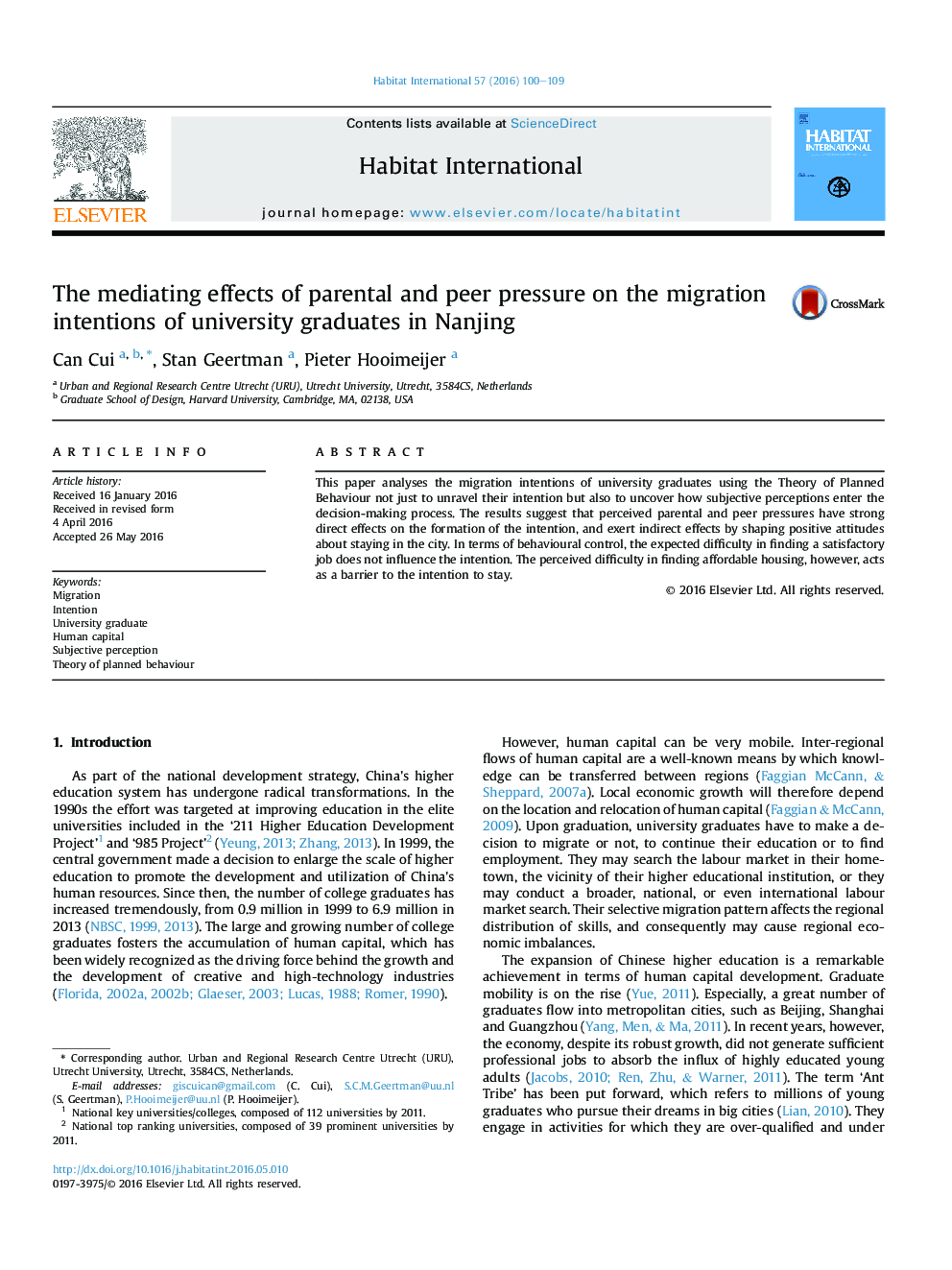| Article ID | Journal | Published Year | Pages | File Type |
|---|---|---|---|---|
| 1047637 | Habitat International | 2016 | 10 Pages |
Abstract
This paper analyses the migration intentions of university graduates using the Theory of Planned Behaviour not just to unravel their intention but also to uncover how subjective perceptions enter the decision-making process. The results suggest that perceived parental and peer pressures have strong direct effects on the formation of the intention, and exert indirect effects by shaping positive attitudes about staying in the city. In terms of behavioural control, the expected difficulty in finding a satisfactory job does not influence the intention. The perceived difficulty in finding affordable housing, however, acts as a barrier to the intention to stay.
Related Topics
Social Sciences and Humanities
Social Sciences
Development
Authors
Can Cui, Stan Geertman, Pieter Hooimeijer,
